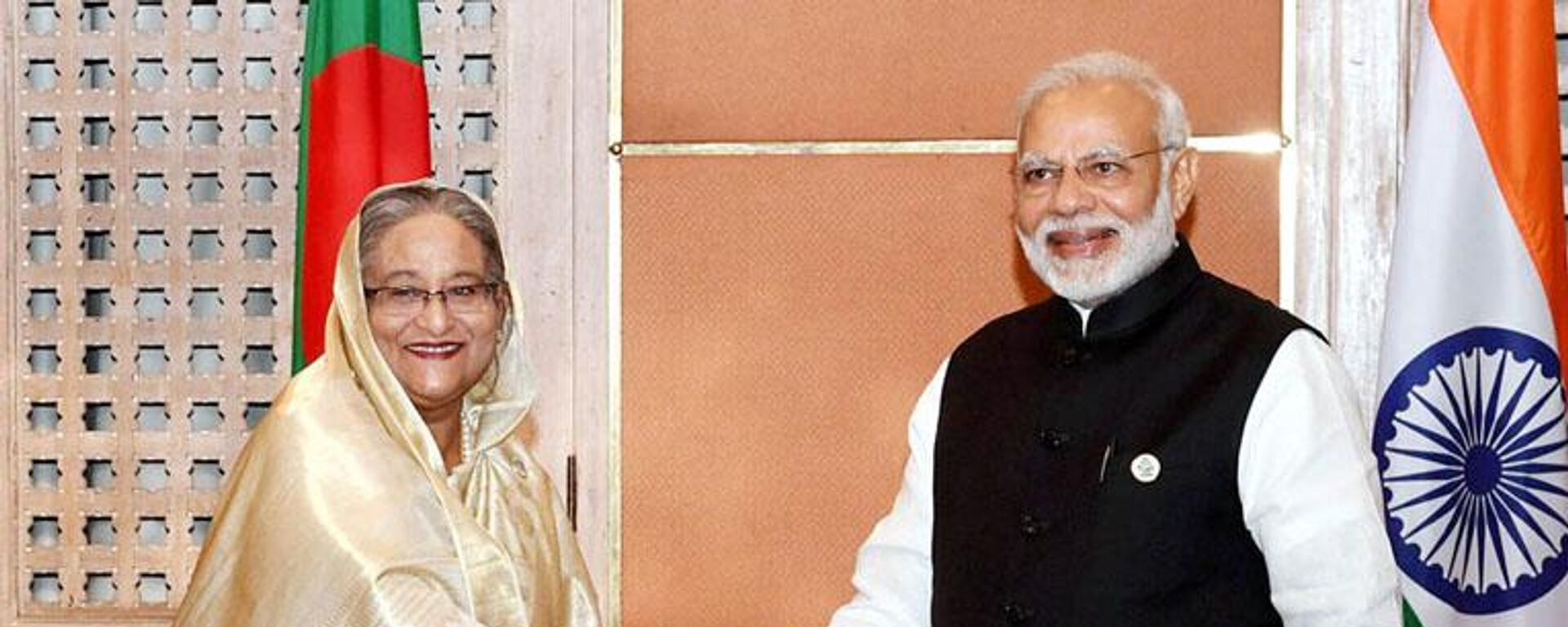https://sputniknews.in/20241010/japans-media-distorts-indias-foreign-policy-8257399.html
Japan's Media Distorts India’s Foreign Policy
Japan's Media Distorts India’s Foreign Policy
Sputnik India
Japan's position as a "vassal state of the US" underscores its dependence on American security. In contrast, India follows an independent foreign policy by... 10.10.2024, Sputnik India
2024-10-10T08:13+0530
2024-10-10T08:13+0530
2024-10-10T18:37+0530
sputnik opinion
s. jaishankar
rajnath singh
india
sri lanka
maldives
taliban
shanghai cooperation organisation (sco)
ministry of external affairs (mea)
japan
https://cdn1.img.sputniknews.in/img/07e8/0a/0a/8260024_0:317:3001:2005_1920x0_80_0_0_1f3fa005b8c8aa7f36121d460db2bf91.jpg
The Japanese press has criticised India's foreign policy under Modi claiming it has been poorly directed, leading to a lack of meaningful alliances in South Asia, particularly highlighted by the changing political landscape in countries like Sri Lanka.Modi's efforts to strengthen ties with neighbours have been undermined by a failure to recognise and respond to the shifting political sentiments in countries like Sri Lanka and the Maldives, both of which are gravitating towards China, according to Japanese media.India's "neighbourhood-first" policy is portrayed as overly simplistic and flawed, with experts arguing that it has failed to effectively navigate the complexities of regional politics, which has led to significant diplomatic miscalculations.The article mentions that India's assertiveness in the region is often viewed as arrogance, fomenting resentment among its neighbours and damaging India's reputation as a regional leader.This policy aims to foster the development of neighbouring countries, highlighting that India's own prosperity is linked to their success. Importantly, it does not entail regime change, as governance decisions reside firmly in the hands of the people of those nations, as stated by Trigunayat. In the realm of international diplomacy, collaboration with existing governments is crucial for the success of development projects. India consistently engages with current leaders to support their citizens, a practice that has demonstrated its effectiveness, he remarked.Countries like Bangladesh, Nepal, and even the Maldives — whose president recently visited India— have shown continued engagement with India, reflecting their acknowledgment of mutual interests, Trigunayat emphasised.“Both China and India are neighbours to these countries, and the competition for influence between them is likely to persist. China has tried to create its own periphery here in the region. So that is normal,” the former ambassador contended.Meanwhile, Japan's status as a "vassal state of the US" contrasts sharply with India's claim of an independent foreign policy, since Tokyo maintains a security agreement with its US alliance partner, relying heavily on American protection, the former diplomat argued.In contrast, the pundit noted that India does not align itself as a formal ally of any nation. Rather, it cultivates strategic partnerships and alignments while remaining free from commitment to any specific alliance.What Makes Japanese Media's Critique of India's Foreign Policy Misguided?The ambassador emphasised that countries in the region recognise the advantages of India's cooperative approach. This is evident from recent developments in the Maldives, Sri Lanka, and even Afghanistan, where the Taliban is seeking Indian assistance despite the political changes.Indian development cooperation, often termed the "development compact," encompasses grants, loans, lines of credit, trade, technology transfers, and technical training. This multifaceted strategy has become a cornerstone of India's assertive foreign policy towards both the Global South and its neighbours.Since achieving independence, India has fostered development partnerships, and following economic liberalisation, its foreign assistance increased sevenfold from the turn of the century to 2015. Notably, over 80% of its commitments in grants and loans have been allocated to its South Asian neighbours such as Afghanistan, Bangladesh, Bhutan, the Maldives, Nepal, and Sri Lanka.While there has been a change in the government in Sri Lanka, the military pundit highlighted that India's long-standing support indicates a readiness to adapt to new political realities while maintaining its strategic interests.Despite ongoing border tensions, Singh mentioned that China remains one of India's largest trade partners, highlighting the complexity of India-China relations and the potential for economic collaboration.On the other hand, India’s foreign policy remains proactive, addressing challenges posed by external influences [the US & others] in countries like Bangladesh while promoting stability and democratic values in the region, he concluded.
https://sputniknews.in/20240806/western-interference-in-bangladesh-sparks-warning-sign-for-india-7968154.html
india
sri lanka
maldives
japan
us
china
south china sea
pakistan
Sputnik India
feedback.hindi@sputniknews.com
+74956456601
MIA „Rossiya Segodnya“
2024
Swapna Nair
https://cdn1.img.sputniknews.in/img/07e7/09/12/4320104_0:0:681:681_100x100_80_0_0_ca8a7d4d582609272840ffdd1cde7278.jpg
Swapna Nair
https://cdn1.img.sputniknews.in/img/07e7/09/12/4320104_0:0:681:681_100x100_80_0_0_ca8a7d4d582609272840ffdd1cde7278.jpg
News
en_IN
Sputnik India
feedback.hindi@sputniknews.com
+74956456601
MIA „Rossiya Segodnya“
Sputnik India
feedback.hindi@sputniknews.com
+74956456601
MIA „Rossiya Segodnya“
Swapna Nair
https://cdn1.img.sputniknews.in/img/07e7/09/12/4320104_0:0:681:681_100x100_80_0_0_ca8a7d4d582609272840ffdd1cde7278.jpg
s. jaishankar, rajnath singh, india, sri lanka, maldives, taliban, shanghai cooperation organisation (sco), ministry of external affairs (mea), japan, us, us state department, china, south china sea, pakistan tehreek-e-insaf (pti), pakistan, pakistan army
s. jaishankar, rajnath singh, india, sri lanka, maldives, taliban, shanghai cooperation organisation (sco), ministry of external affairs (mea), japan, us, us state department, china, south china sea, pakistan tehreek-e-insaf (pti), pakistan, pakistan army
Japan's Media Distorts India’s Foreign Policy
08:13 10.10.2024 (Updated: 18:37 10.10.2024) Japan's position as a "vassal state of the US" underscores its dependence on American security. In contrast, India follows an independent foreign policy by establishing strategic partnerships that do not involve formal alliances.
The Japanese press has criticised India's foreign policy under Modi claiming it has been poorly directed, leading to a lack of meaningful alliances in South Asia, particularly highlighted by the changing political landscape in countries like Sri Lanka.
Modi's efforts to strengthen ties with neighbours have been undermined by a failure to recognise and respond to the shifting political sentiments in countries like Sri Lanka and the Maldives, both of which are gravitating towards China, according to Japanese media.
India's "neighbourhood-first" policy is portrayed as overly simplistic and flawed, with experts arguing that it has failed to effectively navigate the complexities of regional politics, which has led to significant diplomatic miscalculations.
The article mentions that India's assertiveness in the region is often viewed as arrogance, fomenting resentment among its neighbours and damaging India's reputation as a regional leader.
“The Japanese media article, which asserts that India's foreign policy has isolated the country in South Asia, is based on a fundamentally flawed perspective that may reflect either malicious intent or a misunderstanding of India's "neighbourhood-first" policy”, Ambassador (Retd) Anil Trigunayat, Distinguished Fellow at the Vivekananda International Foundation (VIF), told Sputnik India.
This policy aims to foster the development of neighbouring countries, highlighting that India's own prosperity is linked to their success. Importantly, it does not entail regime change, as governance decisions reside firmly in the hands of the people of those nations, as stated by Trigunayat.
In the realm of international diplomacy, collaboration with existing governments is crucial for the success of development projects. India consistently engages with current leaders to support their citizens, a practice that has demonstrated its effectiveness, he remarked.
For instance, in the cases of the Maldives and Sri Lanka, India has consistently played a crucial role in aiding these nations, especially during Sri Lanka's severe financial crisis, the former envoy stated noting, “a change in government does not diminish a country’s commitment to its national interests.”
Countries like Bangladesh, Nepal, and even the Maldives — whose president recently visited India— have shown continued engagement with India, reflecting their acknowledgment of mutual interests, Trigunayat emphasised.
“Both China and India are neighbours to these countries, and the competition for influence between them is likely to persist. China has tried to create its own periphery here in the region. So that is normal,” the former ambassador contended.
Countries in the region prioritise their national interests, and India is ready to support them without dictating which beneficial partnerships to choose, Trigunayat pointed out.
Meanwhile, Japan's status as a "vassal state of the US" contrasts sharply with India's claim of an independent foreign policy, since Tokyo maintains a security agreement with its US alliance partner, relying heavily on American protection, the former diplomat argued.
In contrast, the pundit noted that India does not align itself as a formal ally of any nation. Rather, it cultivates strategic partnerships and alignments while remaining free from commitment to any specific alliance.
What Makes Japanese Media's Critique of India's Foreign Policy Misguided?
The article overlooks crucial aspects of India’s contributions to South Asia, particularly its Sagar and neighborhood-first policies, which the authors seem to misunderstand. India's approach, rooted in the philosophy of “sabka saath, sabka vikas” emphasizes collective growth and mutual support, he added.
The ambassador emphasised that countries in the region recognise the advantages of India's cooperative approach. This is evident from
recent developments in the Maldives, Sri Lanka, and even Afghanistan, where the Taliban is seeking Indian assistance despite the political changes.
Indian development cooperation, often termed the "development compact," encompasses grants, loans, lines of credit, trade, technology transfers, and technical training. This multifaceted strategy has become a cornerstone of India's assertive foreign policy towards both the Global South and its neighbours.
Since achieving independence, India has fostered development partnerships, and following economic liberalisation, its foreign assistance increased sevenfold from the turn of the century to 2015. Notably, over 80% of its commitments in grants and loans have been allocated to its
South Asian neighbours such as Afghanistan, Bangladesh, Bhutan, the Maldives, Nepal, and Sri Lanka.
“India continues to be a reliable partner for smaller countries like the Maldives and Bangladesh, providing essential assistance and reaffirming its commitment to regional stability,” Major General Jagatbir Singh (Retd), Distinguished Fellow at United Service Institution of India (USI), told Sputnik India.
While there has been a change in the government in Sri Lanka, the military pundit highlighted that India's long-standing support indicates a readiness to adapt to new political realities while maintaining its strategic interests.
At the same time, India continues diplomatic ties even with “challenging” neighbours, as proven by Jaishankar's upcoming visit to Pakistan for the SCO summit, he added.
Despite ongoing border tensions, Singh mentioned that China remains one of India's largest trade partners, highlighting the
complexity of India-China relations and the potential for economic collaboration.
On the other hand, India’s foreign policy remains proactive, addressing challenges posed by
external influences [the US & others] in countries like Bangladesh while promoting stability and democratic values in the region, he concluded.



